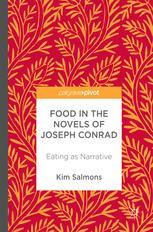

Most ebook files are in PDF format, so you can easily read them using various software such as Foxit Reader or directly on the Google Chrome browser.
Some ebook files are released by publishers in other formats such as .awz, .mobi, .epub, .fb2, etc. You may need to install specific software to read these formats on mobile/PC, such as Calibre.
Please read the tutorial at this link: https://ebookbell.com/faq
We offer FREE conversion to the popular formats you request; however, this may take some time. Therefore, right after payment, please email us, and we will try to provide the service as quickly as possible.
For some exceptional file formats or broken links (if any), please refrain from opening any disputes. Instead, email us first, and we will try to assist within a maximum of 6 hours.
EbookBell Team

4.8
34 reviewsThis book is about the role of food in the works of Joseph Conrad, analysing the social, political and anthropological context of references to meals, eating, food production and cannibalism. It offers a new perspective on the works of Joseph Conrad and provides an accessible medium through which readers can engage with the complex theories and philosophical dilemmas that Conrad presents in his fiction. This is the only major study of food in Conrad’s works; it is unique in its interdisciplinary approach to food in that it engages with sociological, political, historical, personal and literary perspectives, thus providing a multi-dimensional approach to cultural, revolutionary, periodical and fictional representations of the late nineteenth and early twentieth centuries. This in turn, allows an interrogation of modern anxieties, embedded in cultural norms and values that can be interpreted through the way that food is prepared and eaten.